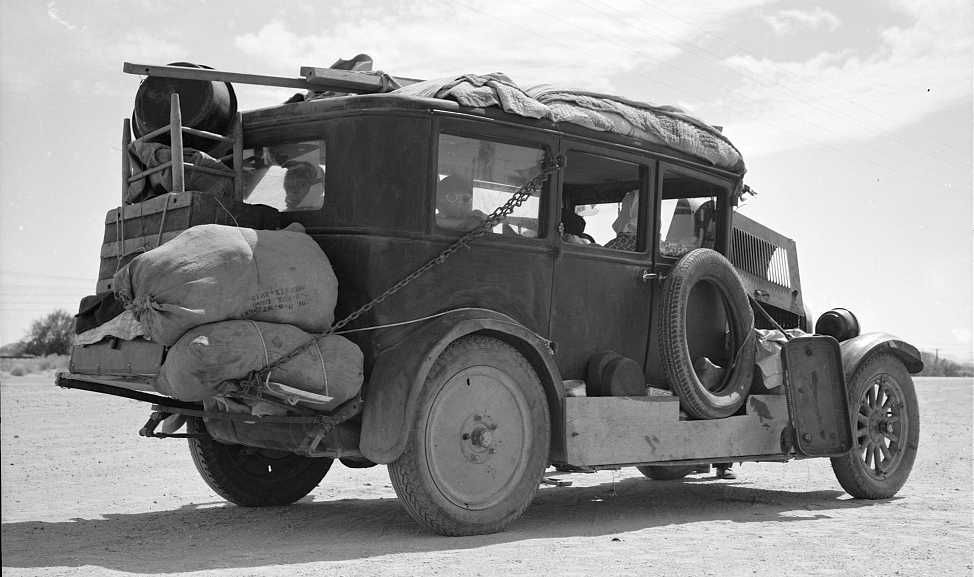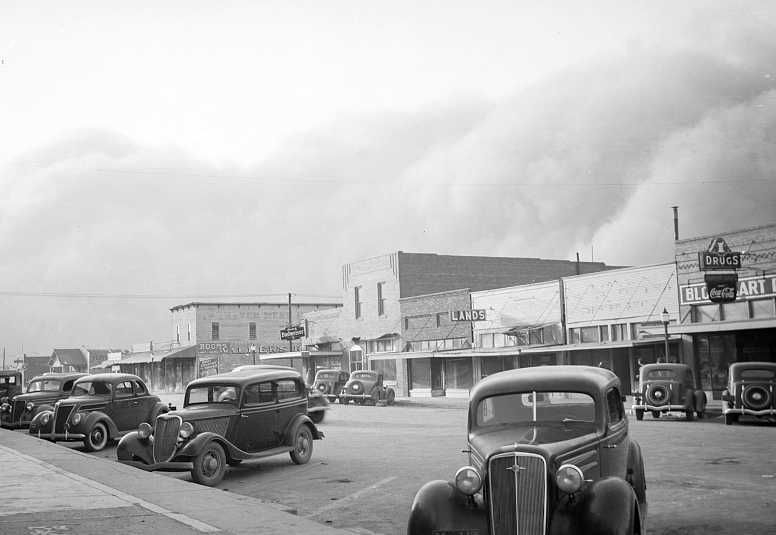
GEORGIA
Gabriel Marge
Disappointment? Once walking to a farm house looking for work, and having an elderly couple come out with a shot gun and told to get off property. And you bet I was scared.
I remember boxing for three rounds in Raleigh, NC for a pair of shoes, only to have someone try to steal them off my feet during the night.
GEORGIA
Arthur Davis
I was a victim of the Dust Bowl.
I left home at my stepmother’s request. I graduated from 8th grade and was asked to leave.
rode from 15-21, 1929-1935
I was out in Los Angeles and I had just turned 21. There was no work. Fruit and vegetable packing plants paid all of 35 cents an hour.
“The most remarkable thing that happened to me was riding the blinds on the 20th Century Limited from Chicago to New York”
“In Texas, I saw a railroad dick try to throw some men off the coal car they were riding in. One man hit the detective in the head with a chunk of coal, then the others picked him up and threw him over the side. The train was probably doing about 50 MPH. I don’t know if the man was dead or alive”

GEORGIA
Charles Britt
Ran away from home in 1935 at age 15.
Remember one evening when it was almost dark and he was hungry and he knocked on someone’s door and told them he was hungry and would they please give him enough to eat for the night. They gave him a can of dog food.
GEORGIA
Charles Samz
I lived with my parents on an 80-acre farm in northeastern Wisconsin, and graduated from Argonne High School in 1933. After four years of Depression prices for our milk and potatoes, compounded by an equal number of years of drought and grasshoppers, things were grim. Since there was no future on the farm and one mouth less to feed would lighten the load on my parents, I took off.
I spent four years riding freights and doing what I could find to do: wheat harvest in North Dakota, potato picking in Nebraska, cotton picking in California, cypress logging and saw milling in Florida, driving a produce truck in Michigan, working as a gandy dancer (extra gang railway track work) in Nevada, sharpening lawnmowers in California, and so on.
Now that I start thinking about it, I get the old adrenaline rush as I crouched in a ditch at the edge of the yards, listening to the freight coming out, hoping that it hasn’t picked up too much speed, and that I can find an open box car door to swing into, so that I don’t have to chance the ladder on the end of the car. Always the ladder on the front end; then the car’s momentum only slams your body against the side of the car. Catch the back ladder and you can be swung between the cars, and break an arm, dropping you on the track. It did happen.
A great multitude of things were memorable. I might possibly mention the holiday season of possibly 1938:
I spent Thanksgiving Day in a boodle jail in New Orleans, Christmas Day in jail in Valdosta, Georgia, and New Year's Day in jail in Tampa, Florida. While being in jail was not remarkable, given the attitude of the time that to be homeless and penniless was criminal, my failure to evade the bulls on these three days was a bit unusual.
My ride through the Royal Gorge of the Arkansas River in Colorado: I was in a gondola loaded with scrap iron, there was snow on the ground and on the scrap iron and I was so cold that I was shivering. But the grandeur of the cliff s towering above was so overwhelming that the impression, in spite of the cold, has stayed with me. Since I was in a gondola, I had an unimpeded view upward; and I can recall the awesome sight of the highway suspension bridge at what seemed an impossible distance above.
Mostly I traveled alone, but sometimes in the jungle or in a boxcar I would get into a conversation with someone who was traveling in the same direction, and we would team up. These "partnerships" were very flexible, lasting for a few days to a few weeks. The parting would be casual; one saying "Think I’ll go West today", and the other opting to go South.
There were two principal methods of getting food. The first was "batterin' the privates", or asking for food at the back doors of houses. This often produced a rejection, but success could be gratifying, and came in one of two forms.
The "lump" was a package of miscellaneous bread, meats, etc., usually paper-wrapped, which was than taken around the corner, or back to the hobo "jungle" by the railroad yards, to be consumed.
The "set-down" was a hand-out, usually on the back stoop, of whatever was available in the kitchen, often on a plate, with utensils, and at times was quite substantial. A very frequent feature of the "set-down" was the interested attendance of the family children, who watched the eating process with fascination, often asking numerous questions.
The second method was "working the stem" which meant the business streets, and "Mister would you please" and "Lady would you be so kind".
This could be dangerous, since it involved exposure to the Big Law (the police, as differentiated from the Little Law, or railway security), and the anti-vagrancy regulations common in those times. Proceeds, if any, were sometimes spent in a greasy spoon, if an inexpensive eating place were available, but more often went for a loaf of day-old bread (half-price at the back door of the bakery), ditto sweet rolls, and whatever sausage ends or unsalable vegetables might be available at the back doors of the local "butchers" and groceries.
These were then taken back to the "jungle" at the yards to be cooked up (usually in old coffee tins) and washed down with coffee seconds, made by boiling grounds which had already been boiled at least once). In small town areas where gardens were available, after-dark requisitions sometimes yielded stew-makings.
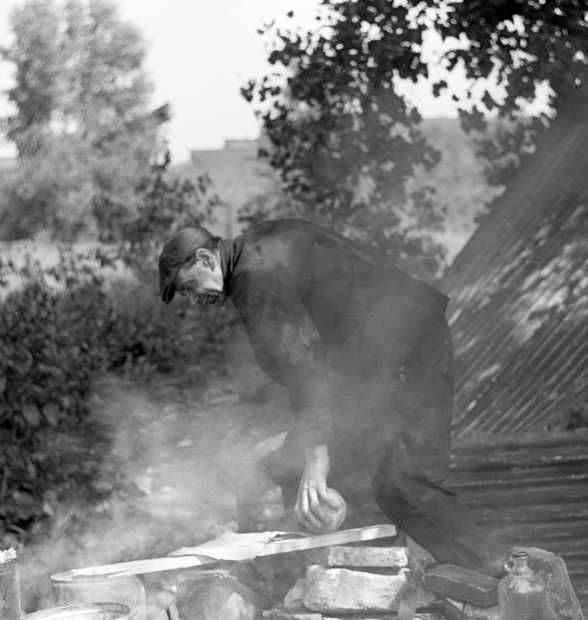
In the Coachella Valley area of southern California I subsisted for about a week on dates picked up from the ground around loading docks of packing houses, and grapefruit garnered by night-time forays into orchards. I then got employment picking green beans, and lived on the beans I brought back to the jungle in my jacket pockets each night.
A variant on working the stem was checking pay telephone booth coin return pockets, which surprisingly often would yield an over-looked nickel. This nickel then bought a cup of coffee at the nearest restaurant counter, in which was poured as much sugar from the counter sugar dispenser as the cup would hold, for maximum energy intake. A bonus of this method was the tooth-pick picked up at the cashier's desk, which was then ostentatiously carried in the lips at a jaunty angle, to give the impression of having bought, and paid for, food. It was hoped that this would give some small protection from the local law.
As regards shelter, there were more ways of finding that than there were of finding food. Among them were empty box cars, ice compartments (empty of course) in "reefers" (refrigerator cars), under railway and highway bridges, jails (in carefully selected towns), barroom floors, and so on.
An especially prized location in some areas of the West (the West was always much more tolerant than other areas) was the sand house at the round-house in a railway division. The sand house was the storage and drying facility for the sand carried in the domes of the steam locomotives, which was poured onto the track when needed to improve traction for the drivers. The sand in the sand house was piled around a large stove, for drying, and the most comfortable temperature could be easily be chosen by judicious selection of distance from the stove. This, and its delicious softness, made the sand house a great prize, especially when the outside temperature was uncomfortably low.
Another frequently used, when available, source of both food and shelter consisted of the "Sallies," Salvation Army facilities, and the missions. Both were often found in the skid-row area of cities, and frequently on the side streets of large towns. Both were usually sources of "two hots and a flop", the Sally normally expecting some labor, such as cleaning up, in return.
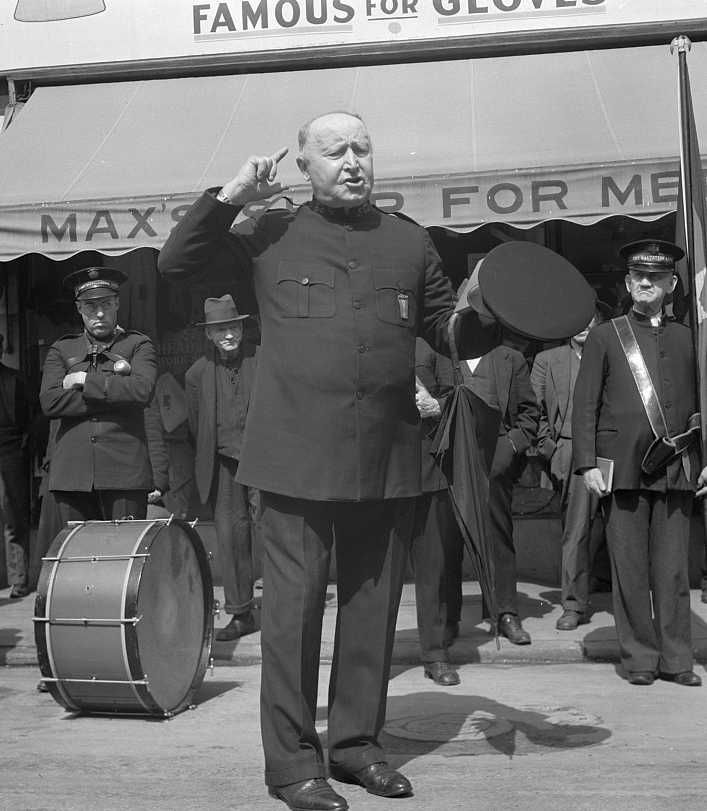
Missions were run by a variety of what would now be termed fundamentalist sects, frequently housed in what had been retail stores. A large banner in a window frequently bore the name of the mission, often with a religious message as well. They supplied an evening meal, bread and soup with coffee being common, following which a preacher would hold forth, loudly and at length, exhorting those present to forgo their sinful ways and follow the Lord to forgiveness and redemption.
These sessions were endured by the (captive) audience as required payment for the floor space for the night's sleeping and the morning meal. The thunderous pronouncements and rhetorical questions of the preacher were sufficiently impressive to provide material for many hobo jungle stories.
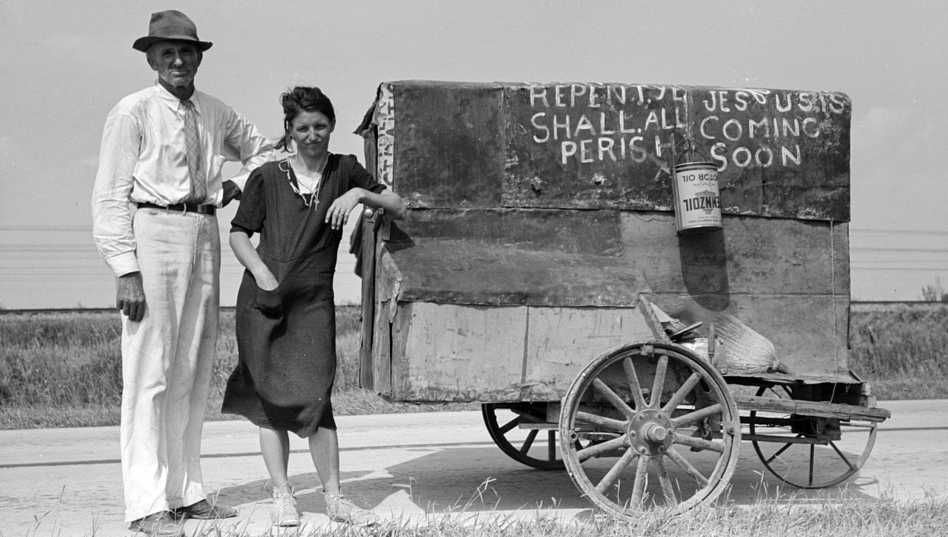
Hobo Jungles: Learning the ropes from old-timers.
However, even with all of these opportunities, in my experience, nights out in the open occurred with distressing frequency. That was, of course, the reason that bums like myself joined the other two "b's", birds and bankers, in going south for the winter.
Learned the ropes by watching and listening to the old-timers, the experienced travelers. Even though there were always many new recruits to the ranks, the old hands usually out-numbered the newly-arrived. Especially in the West there were many who had made a career of travellin': miners, ranch hands, cooks, railway workers, and many other “boomers” whose life on the road pre-dated the Depression.
Most communication took place in the jungle, around a can of seconds, or in box cars on the way from here to there. Although we each tended to keep to ourselves, since no one else was ever to be entirely trusted, there was a sort of careful tolerance, and a sort of camaraderie. The outside world was the hostile place; there was the feeling that "It's us against the rest of the world".
I remember well one individual from my years traveling: an Irishman with whom I worked a wheat harvest near Devils Lake, North Dakota, in about 1935.
Broken-Nose Murphy was a big, red-faced man, of uncertain temper, who happened to go to the local employment office from the jungle at the same time that I did, and the two of us, along with an ex-pugilist called Cyclone Pete, were hired by the same rancher and put up together in the bunk house.
The reason that I remember him, aside from the skewed facial feature which gave him his nick-name, (and the fact that his was the only family name I ever heard used on the road), was his persistence and ingenuity in satisfying his craving for alcohol. When he could borrow a dollar or two "until pay-day" he got happy on "bay horse" (bay rum) or "rub-i-dub" (rubbing alcohol) from the drug store. At these times he would sing and dance (a bit like a hippopotamus doing a minuet) and was a friend to the world.
Come pay-day, when he had real money, he bought a bottle of Bourbon, which generated in him aggression and meanness which we had not previously seen. It took a number of us in the bunk house to prevent him from wrecking things, and to get him sufficiently under control so that we all could show up for work the following day. Broken-Nose was not very productive that day, but the rest of us covered for him. As I recall, he did not last out the harvest, leaving a few days after pay-day.
Rejection of requests for work were so commonplace that they elicited no particular response. They were, in fact so common and expected that the phrase "...work I can do for something to eat" was frequently shortened to "I need something to eat".
The one experience I remember which struck me as unfair, happened in Oregon in an area positively swarming with unemployed men like myself hoping for work in the timber industry.
I approached a young lady in a small roadside grocery, and asked for food, at which she inquired "Would you do some work for something to eat?" My reply was of course "Yes, certainly, I'd like to work for some food". Her flat response came as a surprise "Well, we don't have any work". I suppose that she found the refusal of work easier than the refusal of food.
The only times I can recall seeing blacks on the road were on odd occasions when I was wintering in the South - Louisiana, Georgia, Florida - and then usually in mission flops or in jails.
At no time did I ever see any white hobo treat a black any differently from anyone else. It was very noticeable, however, that blacks tended to separate themselves from whites, and were careful not to call attention to themselves.
The one thing I do recall in this connection is that white citizens in the South tended to be very rough on white hobos like me, while local blacks were often very helpful to us, sometimes proffering food from their own limited resources. I do not recall seeing blacks riding the rails outside of the South.
At a little spot named Beulah, on the shore of Crystal Lake, I had a stroke of luck.
I had stopped at a roadside restaurant for a cup of coffee and a doughnut. The lady at the counter told me she had recently bought the place and had acquired a license to sell beer. She wanted to advertise that fact, but the local sign painters wanted too much to paint the sign. While she was hunting for the right price, she was losing the beer patronage.
Now, during my high school days I had picked up a few bucks painting posters for local merchants who valued economy over tidiness. I told the proprietor about my artistic talents, and said I'd paint a sign no one could ignore in exchange for room and board. We struck a deal, but I nearly chickened out when she pointed to the site.
High up on top of the big, barn-like building a huge panel ran east and west along the ridgepole. My creative urge was to be limited to four letters, B-E-E-R on both sides of the sign, to entice thirsty drivers coming from either north or south along Highway 31
Luckily I had brought along some tennis clothes including a pair of tattered sneakers. They helped me cling to the steep roof slope as I mounted to my precarious spot where the view of Crystal Lake was magnificent. The first day I primed the board with white paint so it could dry overnight.
My new benefactor - call her Mrs. Wolverine - prepared a clean bed for me in a tiny cabin behind the restaurant. There was a cluster of these small buildings along the lake; most of them vacant. Such "tourist cabins" were the Holiday Inns of the depression era. Most of them were operated by widows or elderly couples seeking some kind of revenue. For me, sleeping in the open, it was grand luxury.
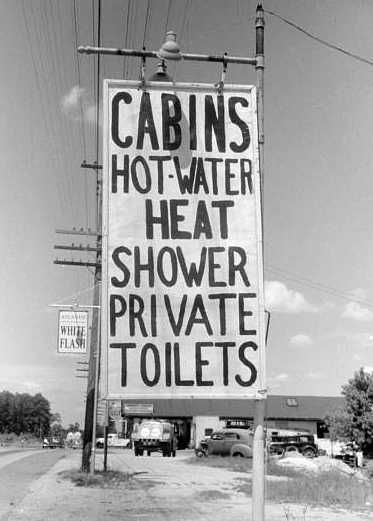
It took me most of the second day to outline the letters in pencil on either side. Each letter was almost three feet high, and spacing was critical. Mrs. Wolverine did permit me some artistic license. I could use two colors in my design; the "B" could be red, and E-E-R was royal blue.
When the big day came to apply color I was king up there on that Michigan roof, balancing two cans of paint. Traffic slowed on US 31 while folks tried to figure out what I was up to. Drivers honked and I waved. Many cars stopped out of curiosity, and the restaurant did a booming business.
The one jarring note came when a couple of severely-dressed ladies called up to me that I was an instrument of the devil, promoting the sale of alcoholic beverages.
When the sign was finished I started putting my things together, ready to move on north. Mrs. Wolverine called me back into the kitchen and gave me a couple of dollars as bonus for a job well done. Then she made me an offer to stay on as a short-order cook at a modest salary. I knew nothing about cooking and told her so, but she told me she would teach me all I needed to know.
I accepted when she said I could drink all the beer I wanted. She later regretted that generous offer.
My philosophy was to stay alive, and, when possible, put aside some of the money I earned when I did find a week's work, with the aim of eventually putting myself through college. I did it, too.
In September 1939 I was working on an extra gang for the Great Northern Railroad in Montana laying a side-track to a new warehouse at a location some miles south of Conrad, on the line between Great Falls and Havre. In other words, I was a gandy-dancer on a gandy crew. I was involved in an accident in which I, along with three other gandy~dancers were buried under a gondola-load of red-hot cinders from the division round-house. After release from hospital, in January or February 1940, I eventually collected $4,000 from the railroad as damages. This money allowed me to re-enter the University of Wisconsin in the fall of 1940, from where I graduated with a BS in Electrical Engineering in January of 1943.
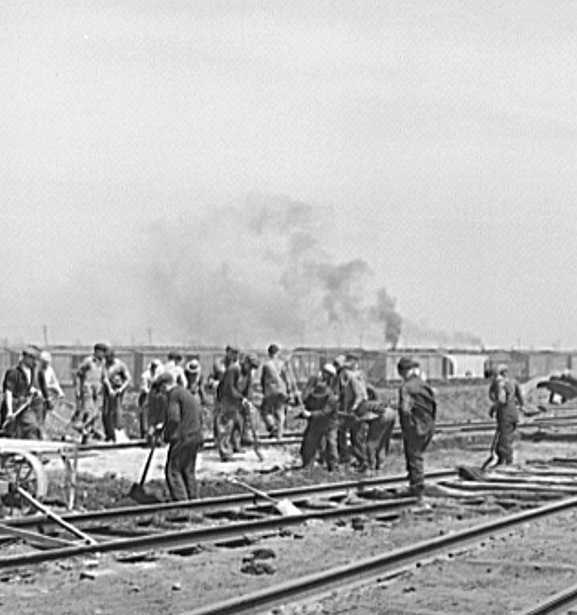
GEORGIA
Eric Ristau
I am now –1992 - 77 years old and have spent more than 40 years of my life as an ordained minister.
At age 17 I left Colorado and during the next three years I traveled through much of the west, crisscrossing many states in my search for work…I was picked up by railroad bulls and witnessed some of the most horrible atrocities inflicted by those who were supposed to be upholders of the law.
GEORGIA
Harold B.Hoopes
13 years old
1930
The banks foreclosed on my father’s farm and we were forced to move to town. There were just no jobs to be found there.
A 17-year-old boy had heard that there were jobs in California and he wanted another 14-year-old boy and myself to go with him. There was nothing for kids to do in this small town of Paradise, Kansas. We decided to go along.
We gathered up what we thought we’d need such as a comb, scissors, a razor (which I didn’t need at 13) and ropes, belts etc. I had 25 cents when we started out and when we got home two months later I still had 15 cents.
At one place where I went to beg food, the lady was so nice. She asked me where my folks were and I told her I didn’t have any. She said she would like to have me for her little boy, so she had her husband buy me a new set of clothes. It seemed that she had lost a little boy about my age. That night I got a good hot bath and a nice clean place to sleep.
The next morning after breakfast she sent me out to mow the yard. I pushed the lawn mower down to the street and just walked away. She was awfully nice but I didn’t want to be her little boy.
I was just a dumb kid and it was an adventure.
I was lying down on a park bench when a man and woman walked by and I heard them say,” Look! There’s one of Hoover’s prodigal children.”
Well, I didn’t know what a prodigal child was, so I decided I’d better get up and move on.
That day was the first time I went by myself up to a door and ask for something to eat. After I got through I went to the pump and rinsed off my dishes. I’ll never forget it was a blue and white plate.
In the meantime my folks had heard that I had been run over by a train. When I walked into the yard, my mother was gathering up little chickens. When she looked up and saw me, she said, Oh, my God! And fainted dead away.
The prodigal son was finally back home and glad to be back.
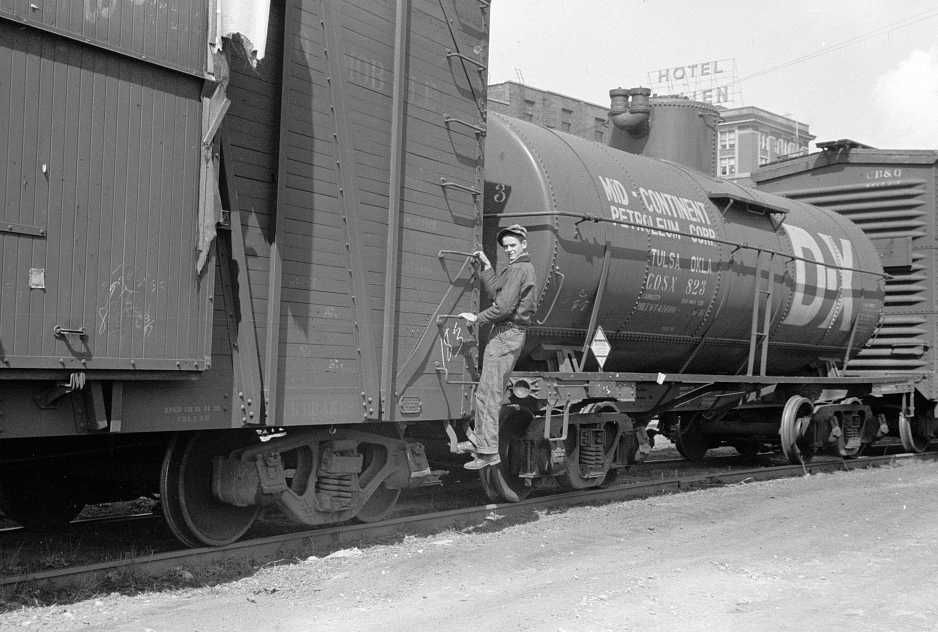
GEORGIA
William Keene
“Al Capone…let me tell you about him. Times were real tough back when I was hoboing and I made it to a lot of soup lines in places like St. Louis, Miami, Cleveland and Kansas City. But the best soup on the trail was in the Chicago line and Al Capone furnished it. We all tried to make it to Chicago whenever possible because we knew good soup was waiting for us.”
IOWA
Al Razor
16 ½ through 20
1930 to 1934
“Part of my left foot was cut off when I fell under a railroad car. I lost the small toe and part of foot. The man at the railroad office was upset with me because I was getting blood on his floor.”
Experience changed me completely. It made me more cooperative and understanding of others.
IOWA
Allene Biby
I was married in Pueblo, Co in 1929. Howard, my husband was 21 and I was 20. The stock market crashed that year and we were right in the thick of it.
Trouble hit when Howard lost his job. For weeks he looked for work. He stopped riding the street car and wore out the soles of his shoes.
Howard was a good dancer and always bought the best shoes he could for dancing every Saturday night. I will never forget that beautiful pair of Florsheims he had. Finally they got holes in their soles. To the very last they had class. Never lost their shape or shine. They are symbolic to me yet, be the best you can until the end.
Howard went to look for work in California.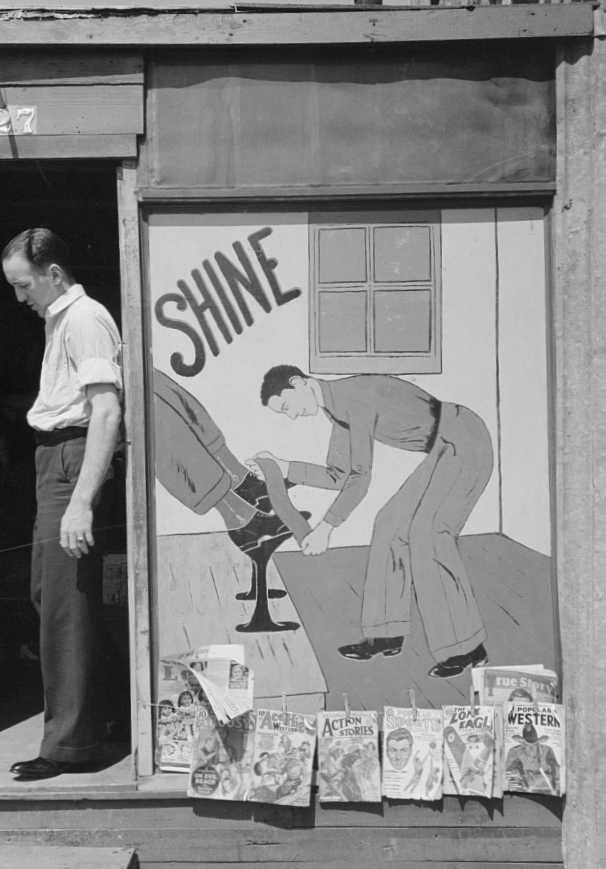
IOWA
Dale Olsen
Rode the rails from age 18 to 24
1933-39
“I could work long hours on the family farm and have nothing to show for it – or see the country and get what you might call an education and many memories.”
Worked at many jobs as a harvest tramp -- hops, farm, lumber, silver mine, dairy, cattle, soda jerk – because most work was seasonal. Many railroads didn’t mind because farms needed men to harvest crops so that they could transport them.
“I had to get from Dubuque, Iowa to Sioux City fast and the only way I could do that was crawl on the tender of the Hawkeye Limited…”
IOWA
Don Petersen
One day sleeping in a boxcar, my friend Orville Smith having all his possessions for this trip in a small paper bag had taken his glasses off and put them in the bag. The car doors were wide open, a strong wind came blowing the bag out. He badly needed his glasses.
These glasses were so important Orville and I got off the first time the train slowed down sufficiently and walked between three towns over a period of two days, the distance I figured being 45 miles, and did not find the bag. Walking along a railroad track is not all that easy.
We found an alkali lake way out in nowhere land, took our clothes off and walked through mud to get to deep enough water to clean ourselves with no soap.
IOWA
Donald McCutcheon
“Those tender, restless years, just out of grade school a short while…”
Heading for the wheat harvest.
Caught a slow freight from Delmer, Iowa, the engine got to pulling up a grade. First thing we learned was not to climb aboard too close to the locomotive. The engine got to pulling its damnedest causing it to spew red hot embers and droplets of scalding water from its stack.
We were given a wagon to haul the threshed grain away from the threshing machine. The going wage was one “cart wheel” per day = a silver dollar
During our last seven weeks of hoboing we got in the backbreaking task of harvesting sugar beets. A plow would root them out loose in the earth. It was the laborer's job to pick up each beet and whack off the green tops. Damn eight hours a day of that. Bent over and you wondered if you’d ever be able to stand straight up again even at our young age.
Had a number of Japanese migrant workers and they would put in a dozen hours a day beginning so early in the morning they had a light on there hat to see by. The big beet harvest lasted until a severe winter cold front and snow storm hit in late October freezing out the sugar beet harvest.
IOWA
Leslie Boomhower
Adventure, 18, 1938
I was alone a lot of the time and walked through Omaha, Nebraska to get to Council Bluff’s, Iowa. I bummed food for five days and was one miserable 18 year old kid most of the time.
The most beautiful sight I have ever seen was riding through Nebraska on a gorgeous moonlight night, tied by my belt on the corner of an oil car, watching the illuminated sagebrush on the rolling sand hills.
Memorable people: A family of Arkansas winos, who had a young kid, also a wino, who had blown most of his fingers off one hand with dynamite caps.
A black man who had trouble getting anyone to give him food.
IOWA
Mary Calter
Child witness to hoboes on the Milwaukee trains.
“You never know when you are entertaining angels” parents told her.
The Milwaukee train ran through our farm at Collins, Iowa.
A black man from the deep south came at lunch time (our biggest meal) in a very immaculate black suit, white shirt and tie. He must have changed when he went to doors for a handout – so clean he sparkled and very handsome.
My parents being southerners mom asked him to wait on the porch. She filled his plate and gave him milk and coffee.
I’ll never forget flies were so bad the poor man probably had a time keeping from eating flies along with his food.
I’ll never forget how my mother worried at the time and even years later: “I wonder if we did right letting him eat out there when we let tramps dirty as could be inside – because they was white we let them eat at table with us. That black man was very immaculate and we put him on the porch."
It really impressed me and my attitude from then on.
I can still see in my mind girls in dresses riding on top of the box cars. Once I remember it was a chilly day and the girls seemed not to have anything to keep them warm.
IOWA
Gerald Rohr
“There were several hundred men on the streets of Fargo, most of them belonged to a group called the IWW which meant they wouldn’t work unless they got the salary they asked for and they tried to stop anyone else if you didn’t join their organization and carry the IWW card.
They were a mean lot, there were a lot of beatings and they burned many a rancher's crops.
